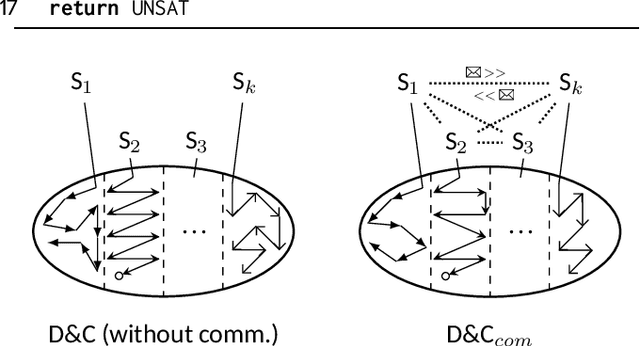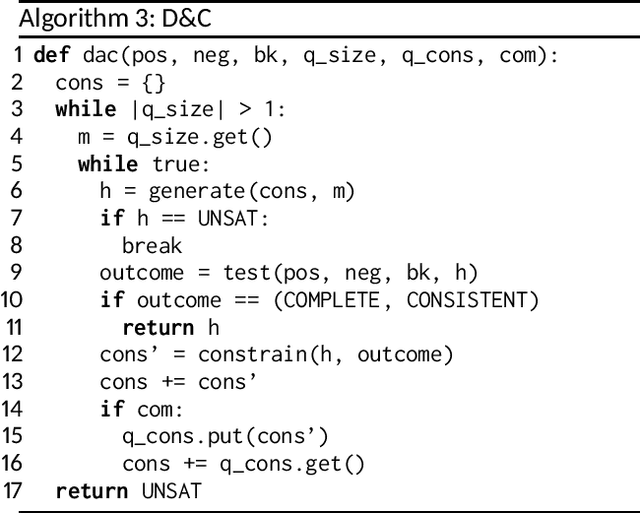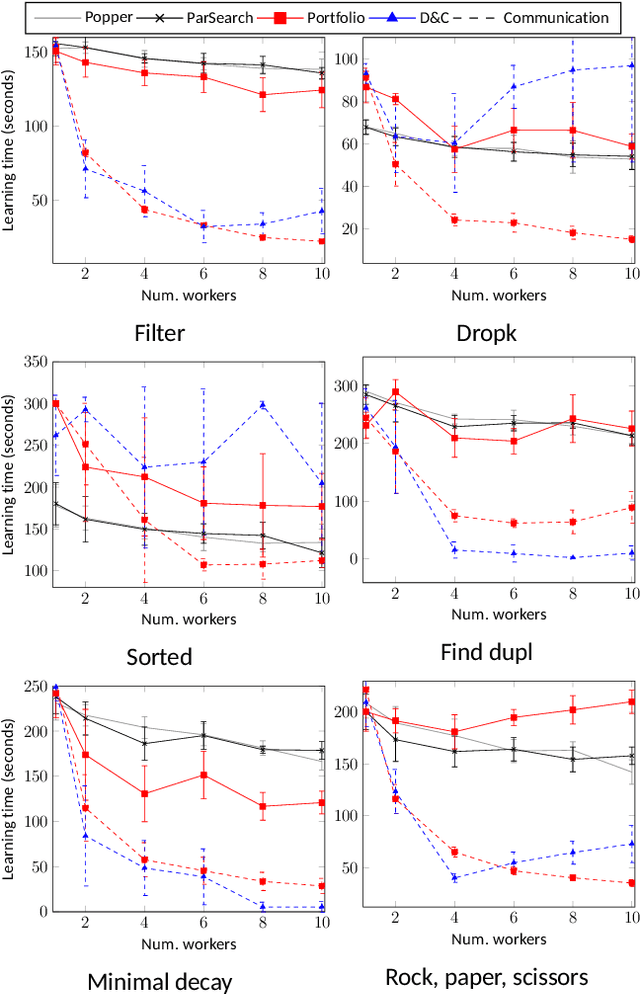Parallel Constraint-Driven Inductive Logic Programming
Paper and Code
Sep 15, 2021



Multi-core machines are ubiquitous. However, most inductive logic programming (ILP) approaches use only a single core, which severely limits their scalability. To address this limitation, we introduce parallel techniques based on constraint-driven ILP where the goal is to accumulate constraints to restrict the hypothesis space. Our experiments on two domains (program synthesis and inductive general game playing) show that (i) parallelisation can substantially reduce learning times, and (ii) worker communication (i.e. sharing constraints) is important for good performance.
* Paper under review
 Add to Chrome
Add to Chrome Add to Firefox
Add to Firefox Add to Edge
Add to Edge